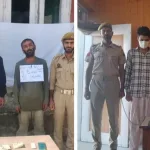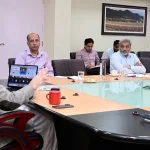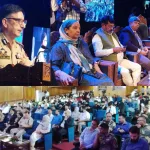Yesterday, a devastating accident claimed 36 lives and left 19 others injured in Doda district. The accident happened when a bus carrying 55 passengers was on its way from Kishtwar to Jammu, skidded off the road and rolled down 300 feet downhill and fell into a deep gorge near Trungal-Assar on the Batote-Kishtwar National Highway. Our hearts bleed for the victims, their families, and every person affected by this tragedy. But as we mourn, we must also look ahead and consider the serious implications this incident holds for UT’s transport safety measures. According to eyewitnesses the accident happened on a treacherously winding mountain road, an all-too-familiar setting for such tragedies in this region. The reasons behind the accident are speculated to be a lethal combination of poor vehicle maintenance, reckless driving, and hazardous road conditions. This tragedy is not just a standalone incident. It is a stark reminder of the recurring problem that has plagued our UT for years – the lack of proper road safety measures, especially in hilly and remote areas. In Jammu and Kashmir, where the terrain is challenging, the stakes are drastically higher, and the margin for error is perilously thin. It is high time the concerned authorities take a hard look at the system that allowed such a disaster to happen. The government and transport authorities must come together to address this issue. Experts are of the opinion that there must be stricter enforcement of traffic rules, including those relating to overloading of vehicles. Overloading not only strains the vehicle’s mechanical integrity but also makes it harder to control, especially on steep, curving mountain roads. Also, the condition of the vehicles themselves must be regularly monitored. Vehicle fitness checks should be compulsory and thorough. Older vehicles in poor condition should not be allowed to ply, especially in challenging terrains. Furthermore, investments in road infrastructure are essential. The state of many roads in this region leaves much to be desired. Better road construction, regular maintenance, safety barriers, and signage can go a long way in preventing accidents. It should not be underestimated that driver education is key. Many accidents can be avoided with better driving skills and awareness of safety measures. Drivers need to be trained to navigate the challenging terrains that are so common in this region. The Doda accident is a tragic reminder of the price we pay for negligence. As we mourn the loss of lives, it is important that we also strive to ensure that such incidents do not recur. Every life is precious, and it is our collective responsibility to safeguard them by making our roads safer. In that regard Government and the concerned authorities share the prime responsibility for making roads safer and prevent such heart-wrenching tragedies in the future.
The tragic Doda accident calls for safer roads
Sign Up For Daily Newsletter
Be keep up! Get the latest breaking news delivered straight to your inbox.
By signing up, you agree to our Terms of Use and acknowledge the data practices in our Privacy Policy. You may unsubscribe at any time.
Leave a Comment Leave a Comment
Stay Connected
Latest News
Recent Posts
- KBC 17’s first ‘Crorepati CISF officer Aditya Kumar’
- Four drug peddlers arrested in Kupwara
- CM Omar Reviews Relief & Rehabilitation Measures for People Affected by Cloudbursts in Kishtwar & Kathua
- Crime Branch organises UT level conference on Anti-Human Trafficking
- Sakeena Itoo reviews developmental scenario of Hazratbal Constituency





